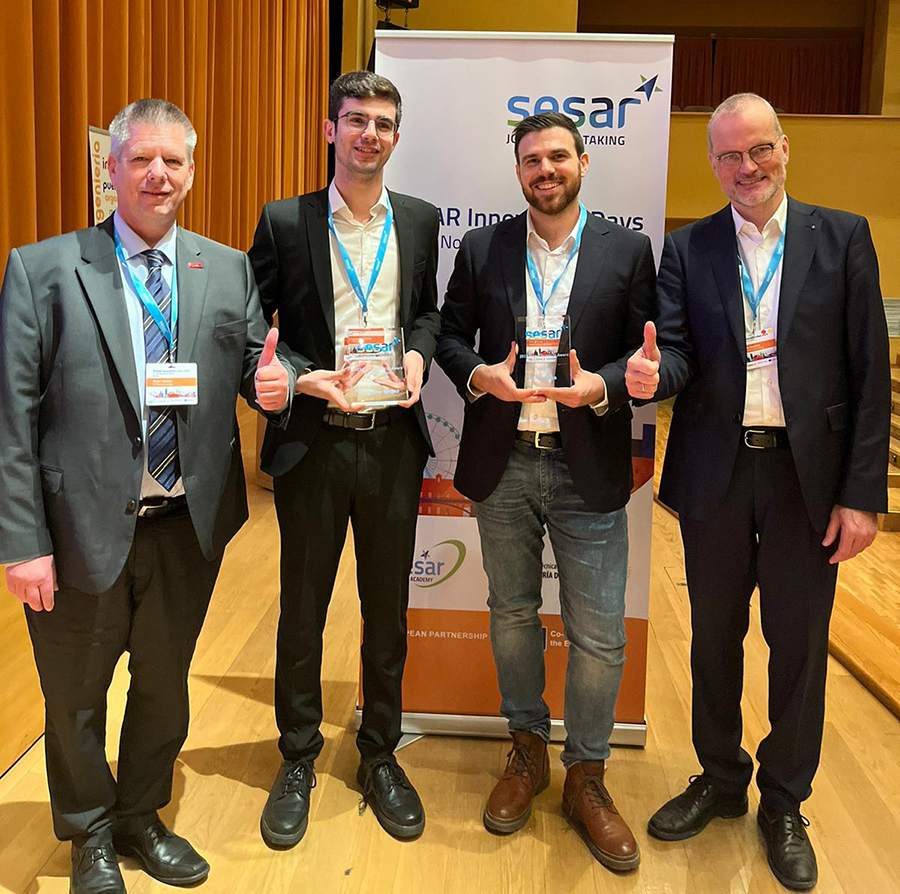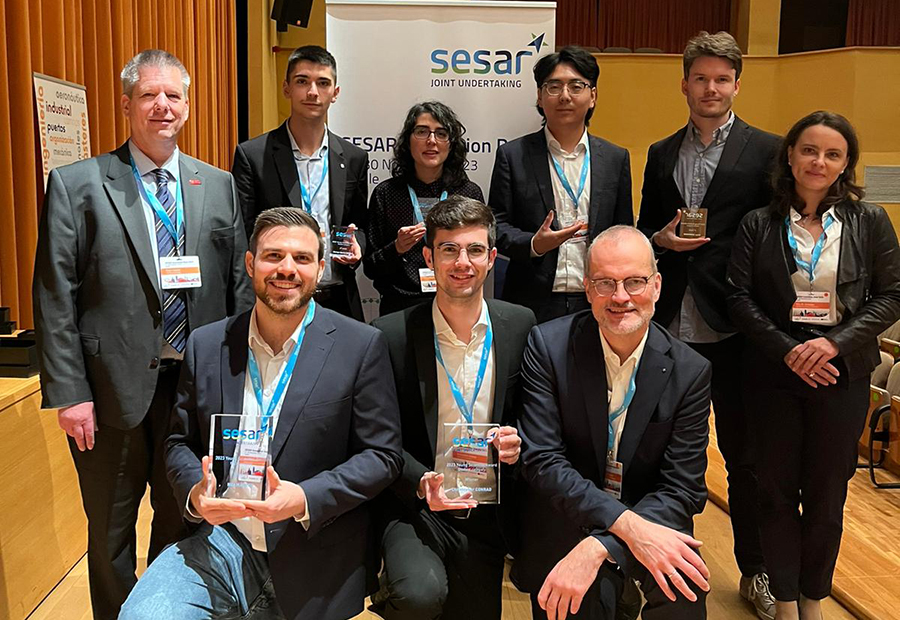Europe’s most promising young minds in air traffic management (ATM) research were celebrated at the SESAR Young Scientist Award ceremony, which took place during the closing plenary of the SESAR Innovation Days conference on 30 November at the University of Seville’s Faculty of Engineering.
Awarded annually, the prize aims to distinguish young scientists, who have demonstrated excellence in ATM and aviation-related research fields. The award also provides researchers starting out in their career with an opportunity for further professional development. A further objective of the award is to showcase the potential of young talent to formulate fresh ideas and solutions to the challenges facing ATM and aviation.
The 2023 edition recognised scientific excellence in two categories: PhD and students (undergraduate/master). The awards were presented during a ceremony, presided over by Andreas Boschen, Executive Director, and Peter Hecker, Technical University of Braunschweig, Chair of the jury, and featured presentations from all short-listed scientists from both categories.
The top award in the PhD category went to Nils Mäurer, Universität der Bundeswehr München/Airbus, for his research into addressing cyber-secure communications in the next generation of aeronautical datalinks. The jury praised him for a very sound and rigorous approach to the research which included solution design, simulation, a security validation, lab work and flight trials.
Wang Zhengyi, Ecole Nationale de l'Aviation Civile/ Nanyang Technological University Singapore, was awarded second place for his thesis on strategic planning for unmanned traffic management. In their evaluation, the jury commented positively on the relevance of the research and scientific excellence demonstrated in the thesis.
Taking third place in the PhD category was Marta Ribeiro, Delft University of Technology, for her thesis investigating whether reinforcement learning (RL) can improve self-separation efficacy, with emphasis on future unmanned operations. The jury commented positively on the novelty of the approach and scientific rigour of the work.
The top prize among the students category went to Christopher Conrad, Cranfield University, whose thesis targets developing a data model supporting vertiport operations. The jury praised Conrad for going beyond the current state-of-the art innovations to tackle the question of resource management and schedule optimisation in urban air mobility.
Taking second prize in the category was George-Daniel Molivă, University POLITEHNICA of Bucharest, whose thesis focused on a mechanism to score the performance of automated ATC systems. The jury commended the scientific soundness of the approach taken in the research.
The third prize went to Olivier Schweiger, University of Vienna, on an AI-based decision-making tool for air traffic control. The jury found the thesis to be scientifically sound and the proposed approach to be innovative.
“I want to congratulate all the applicants, short-listed candidates, and our overall winners, Nils Mäurer and Christopher Conrad. Young talent is the lifeblood of innovation, injecting fresh perspectives, boundless creativity, and an unwavering passion to challenge the status quo. These are the key ingredients we need to deliver the Digital European Sky!” said Andreas Boschen, Executive Director of the SESAR Joint Undertaking.
Read about SESAR Innovation Days
Read about past winners of the awards


